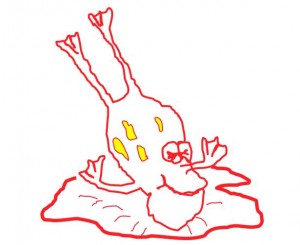Listening into Voice
“All of a sudden I’m having feelings. They’re uncomfortable.
I’m feeling lonely…I miss my family…I haven’t talked to them for years.”
These are the words of Corey a few weeks before Christmas. A middle-aged Black man, homeless, and coming to life at the Salvation Army, he has been diagnosed as schizophrenic, having heard voices to jump off a building and having visions of putting kids in a wood chipper. A longtime drug user, in and out of prison, his first arrest took place when he was 17, when police beat him up for dating a white girl and later pinned a robbery on him. Grief followed him, especially when his young son died of aids, having contracted it from his mother. Now it had been over ten year since Corey spoke with his other children, as he fell deeper into homelessness and chemical dependency.
Today, however, he had been clean and sober for a month, was taking antipsychotic medication and, while still hearing voices, said “I pay them no heed.” He wanted to talk about his loneliness. Was this good or bad, he asked. He looked better than I had ever seen him, and I told him it was probably good, because he now had emotional life flowing through his veins. His feelings were a sign he was coming alive and not self-medicating away his personal pain. What could he do about it, he asked. We got to talking about calling his family members, telling them that he was ok but missing them, that he was getting healthier and wanted them to know he was thinking of them and wanting them to have a Merry Christmas. That he loved them and was working on loving himself.
Feelings, however unpleasant, are signs of health because they are all about relationships. For Corey it was important that he understood his loneliness as a pain he could do something about. He said he had the telephone number of his Aunt, and she would have other numbers, especially the numbers of his children. If he wasn’t going to drown his feelings in drugs, it was important for him not just to look at his feelings but take a leap of faith, faith in his own desire to love, faith that his children would hear him out, faith that he wasn’t stuck in the past. He had to give voice to his feelings and get busy living.
Note: the word emotion comes from the Latin movere, “to move,” and it is in the passive form, i.e. “to be moved.” Emotion, then means not so much “to touch” but “to be touched.” Corey found himself being touched, proof positive that he missed someone with whom he yearned to be connected.
Something clicked!
Andrew recalls he began using drugs when he was eleven. A “normal” kid, he was passionate about sports, especially baseball. He recalls that he never saw his Dad cry, but he had many images of his father drinking. An industrious fellow, Andrew was good at solving problems with a natural talent for plumbing. Married at a young age, he took pride in building a new home for his family. [Read more →]
 “
“

